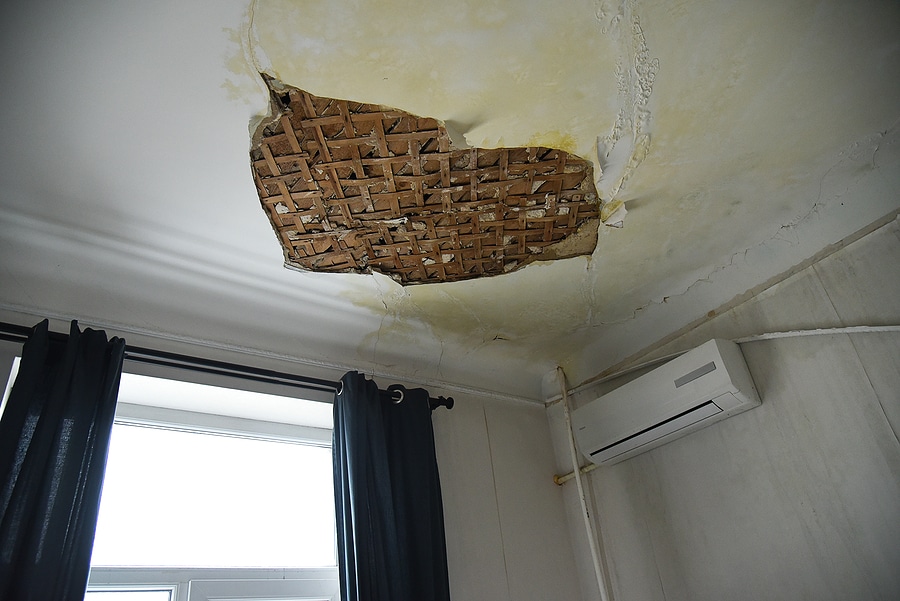Does Your Landlord Insurance Include Loss of Rents Coverage?

If you own a rental property, you’ll want to make sure your landlord insurance includes Loss of Rents coverage. This special protection will replace lost income if a covered event requires tenants to move out while units undergo repairs.
While this income protection for landlords may sound straightforward, we frequently receive questions about what Loss of Rents coverage includes and how it works. Many of these questions come from building owners who are trying to lower their insurance costs. Including this protection is one of the many ways that we offer greater value to landlords in the New York City area, often in addition to finding savings opportunities on landlord insurance.
What is Loss of Rents Insurance?
Most businesses can’t buy insurance against loss of income. If no one shops in a store or eats in a restaurant on a given day, the insurer won’t replace the lost income.
But landlords and building owners have a safety net unavailable to most other businesses.
If a building is rendered partially or fully uninhabitable because of a covered event, such as a fire, an insurance company can help make them whole in two ways.
- The insurer will pay to repair the property damage.
- If the policy includes Loss of Rents protection, the insurer will reimburse them for the missed rents as well.
For owners of apartment and mixed-use buildings, Loss of Rents protection is an important option to consider for your building coverage. This type of coverage protects landlords against loss of income in case an insured event makes your building uninhabitable.
How Does Loss of Rents Insurance Protect Landlord Income?
If an insured crisis hits the building and forces tenants to move out, this type of protection will replace the monthly rent. The coverage will typically last for the duration of repairs, until the tenants move back in, or up to one year—whichever comes first.
Consider the example of a third-floor apartment, where a broken water main causes extensive damage to the second-floor unit. The second-floor tenants need to relocate during the repairs. Loss of Rents coverage will replace the lost rental income during the repair period.
What Loss of Rents Insurance Doesn’t Cover
By contrast, Loss of Rents protection does not cover the following situations:
- Tenant default on rent payments. Unfortunately, many landlords experienced this situation during the pandemic, and we had to deliver bad news. Also, Loss of Rents coverage will not pay for expenses associated with taking legal actions against delinquent tenants.
- Negligence by the building owner. If the landlord could have prevented or mitigated the loss with routine maintenance—say, timely replacement of a hot water heater—the insurance company may deny the claim.
- Apartment vacancy. Loss of Rents coverage does not provide rental income for the transition period between tenants. Building owners have inquired about filing a claim under Loss of Rents when an apartment requires extensive renovation after a long-term tenant leaves. The unit may not be inhabitable during this time, but such updates fall under property maintenance.
In addition, building owners should be careful not to take actions that nullify their coverage. In one legal case, fire damage forced three tenants to vacate the premises. Having purchased Loss of Rents protection, the owner-corporation represented to tenants they would not have to pay rent. However, the tenant leases specifically held tenants responsible for rent payments even in the case of a fire or property repairs. As a result, the insurance carrier denied the claim because the landlord had agreed to waive the rental payments.
While the fire clearly caused the property to be vacated, the court found that the loss of income came from the building owner’s decision not to collect the rental payments mandated by the leases.
Why the Right Partner Matters for Loss of Rents Insurance
Finally, some policies will pay the landlord fair market value for the rental, not necessarily what the tenant was paying. If the tenant was paying more than what the insurer considers fair market value, the landlord or building owner is out the difference. At City Building Owners Insurance, we work with building owners when quoting the initial landlord insurance policy and during the annual review to avoid any unpleasant surprises at claims time.
For more information on what to look for in a landlord insurance policy, check out our articles, “Do you have the right landlord insurance” and “What insurance does a landlord need?”
If you would like a free insurance review or if you have any questions, call us at 877-576-5200, or request a no-obligation insurance review.

